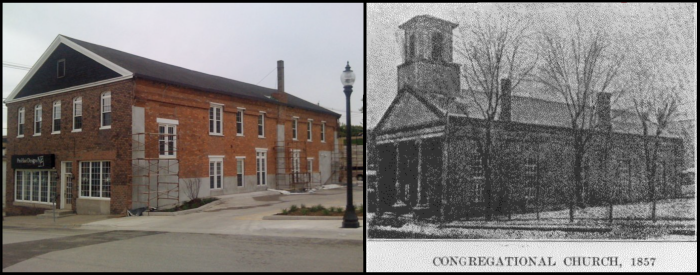This column by Daniel G. Clark about Alexander Clark (1826-1891) first appeared in the Muscatine Journal.
Did you know the Iowa State Fair was held on “the island” south of town in 1856 and 1857?
From the Muscatine Journal, October 9, 1857: “A squash raised by Alexander Clark weighed 177 pounds, but as Aleck is a colored man, we presume the committee could not, according to the Dred Scott decision, award the premium to him in preference to his mule. It would be ‘unconstitutional.’”
From the Burlington Weekly Hawk-Eye, October 14: “Big corn, big beans, big turnips, big potatoes, big everything is the order of the day. There are radishes larger than Rutabagas ought to be, cucumbers whose length is measured in feet, beets half as long as a lamp post, and a squash weighing 177 pounds.”
No mention of Muscatine’s Black agronomist in the Burlington paper, but the same page told of hostilities in Kansas between Free State settlers and “invaders” from Missouri trying to “get possession of and control the election.”
The editor urged readers to reject any Iowa politician who will not “raise his voice or cast his vote for the protection and defence of the people of the territory of Kansas.”
“There is no doubt that the Dred Scott Democracy of Des Moines County are in a minority…. We have but to rally our strength at the polls and see that every Republican vote goes into the Ballot Box and that every illegal vote is kept out….”
Papers across the state bristled with allusions to the U.S. Supreme Court ruling announced in March. A bench dominated by Southern judges ruled unconstitutional the 1820 Missouri Compromise which had limited slavery expansion into new territories. The ruling said persons of African descent, free or enslaved, were not citizens, and upheld owners’ rights to treat enslaved workers as property.
On October 3, the Journal published a letter from county officers of the new party which had controlled state government for one year: “Are you willing to see our whole country prostituted to the embrace of slavery? If not, go to the polls, and see to it, that the whole strength of the Republican party in your neighborhood is mustered to the support of the ticket on election day.”
A negro suffrage measure had lost big in a state referendum in August, when voters just barely ratified an amended constitution.
Aleck Clark enjoyed no right to vote, but he and his allies had played a big part in the politics of the season. I’ll return to that in future columns.
He saw his name in print several times in 1857. A September 19 city council report notes “the application of Alexander Clark for damages on account of changes made in the grade.” The same problem affected the so-called “Uncle Tom’s Cabin” church across the street.
“But, alas! in 1856, when it was supposed that this was to be the great central city of Iowa an ambitious change in the grade of Third street was made, and we were left in our church building some twelve feet up in the air, at the bottom of our foundation.” (Historian Irving B. Richman)
The Congregationalists tore down their 1852 church building and used the bricks to rebuild on an adjoining lot. Meant to be temporary, they would use the 1857 building until the 1890s when they built again at the corner. Today the temp building houses Pro Hair Designs.
I’ve introduced Pastor A.B. Robbins, friend and ally of Black folks, who said most of his church members were abolitionists. Lest that feel good now, historian Richman gives us pause. From “Congregational Life in Muscatine, 1843-1893,” in the Iowa Journal of History and Politics, 1923:
In 1857, during the very height of the slavery contest, a negro woman sought admission to the church on the strength of a letter from the African church of the town, but it was voted not to receive her. The entry states: “In the opinion of the majority of the Church, the reasons of the applicant for being received into this Church rather than to labor for Christ in the Church and among the people of her own color are not satisfactory.”
Muscatine Journal, October 12, 1860: “MUSCATINE STILL AHEAD.—The largest squash exhibited at the recent State Fair weighed 130 lbs. The squash exhibited by Alex. Clark, of this place, at the State Fair, four years ago, weighed 197 lbs. It was raised in his potato patch, on the hilly ground adjacent to the city. We have never heard of a larger squash.”
“America’s classic state fair”—as billed today—began at Fairfield in 1854 and was held there again in 1855. Then the legislature appropriated $2,000 to stage it here in 1856, and Muscatine got it again in 1857. Next it went to Oskaloosa, then Iowa City; two years each.
Aleck Clark grew prize squashes two years running, but he was growing political connections, too.
Next time: Railroad bridge to Iowa
Top image: The Congregationalists’ 1857 building houses Pro Hair Designs Salon and Spa in downtown Muscatine.

